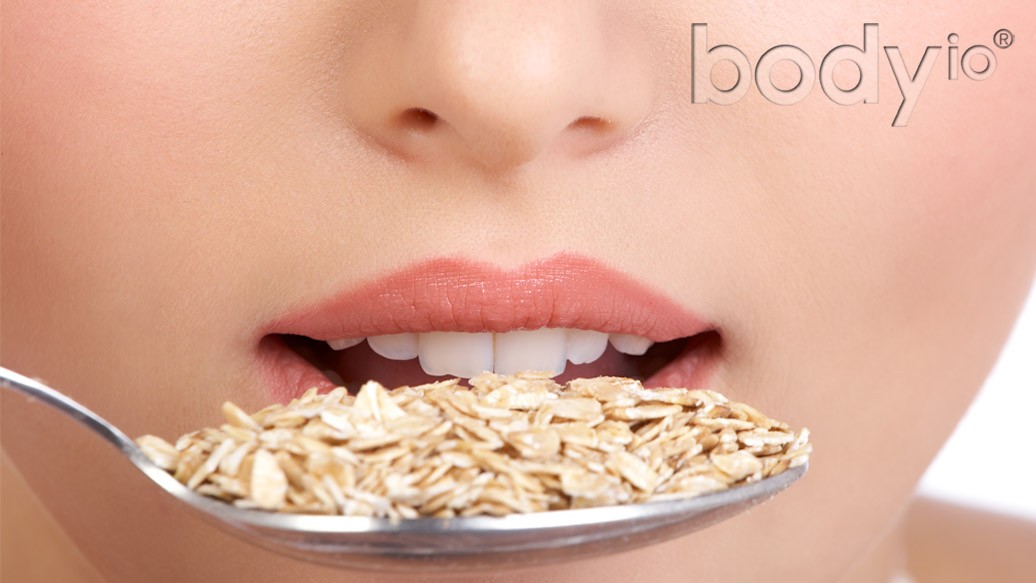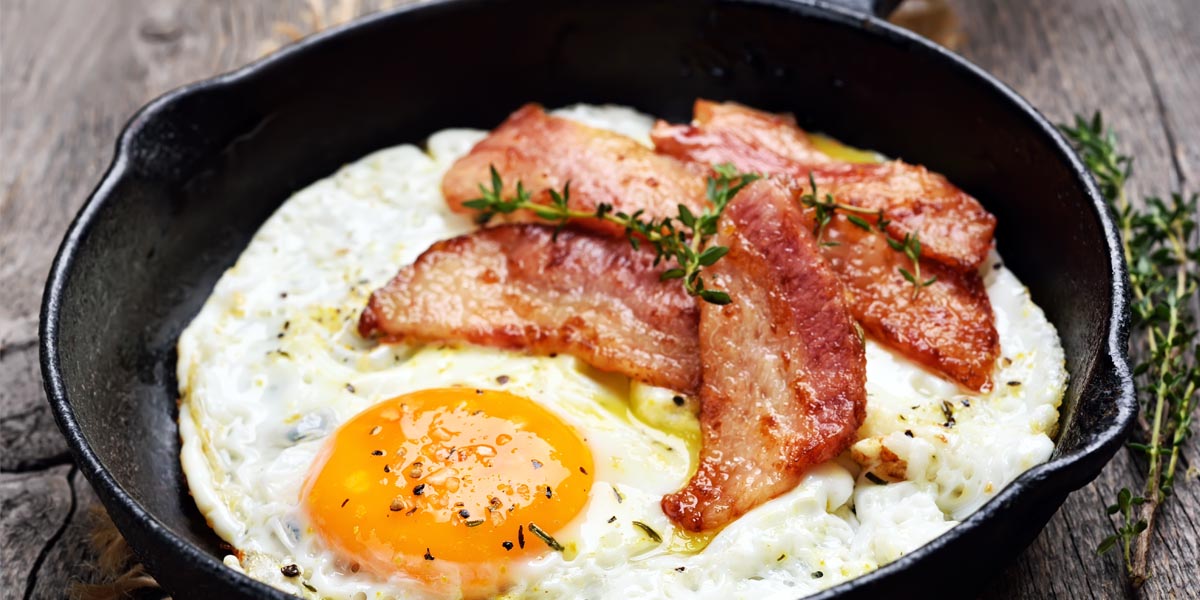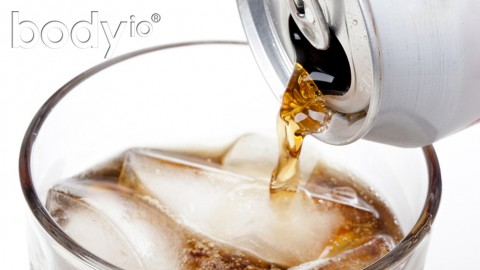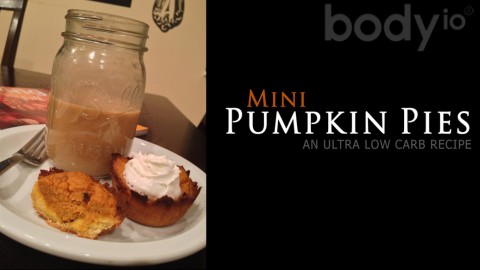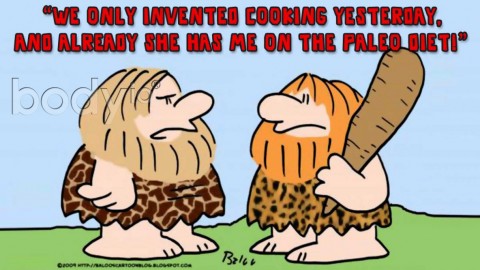Here’s another updated classic from the archives:
S
he’s sitting on the opposite side of the bar, by herself, and she’s smoking hot. With her stiletto heels, fishnet stockings, and hang-your-keys-on-them chest, she’s obviously being watched by every guy in the place, whether they’re single or not. This girl I’m envisioning? You’d look. Trust me.
Here’s the thing about science, though. Unless one of these clowns actually takes this girl home and tests the hypothesis that she’s a woman, nobody will know the other side of things: that “she” might, in actuality, be a transvestite.
I use this analogy whenever anyone starts talking to me about scientific research—specifically regarding something I often refer to as the observation fallacy. What typically happens is that all the so-called experts out there use semantics and backward logic to replace proof with mere observation. The problem is that observing something doesn’t actually make it true.
I found this out the hard way after over a decade researching the science behind Carb Backloading™ and Carb Nite®. I’ve also noticed people publishing articles containing their own conclusions about Carb Backloading (CBL)—simply interpreting what I’m saying rather than doing research of their own. Several people have even written random workout plans for CBL without even a rudimentary understanding of how CBL relates to training. Sure, I can observe that your workout will make people tired. But what does that have to do with the science behind this particular program? Nothing at all.
Of course, scientific research begins with observation. Through the centuries, it’s been the observations of scientific giants that started us down paths to advancement. Observation, however, is only the first step in the process. There are two more steps a scientist must take before conclusions can be drawn and the next course of action can be decided:
Step 2: After observing some phenomenon, the scientist comes up with an explanation for what he’s seen.
Step 3: The scientist then tests his explanation in a variety of ways to see if he’s right.
Then, and only then, can we proceed further. This is how science works. In the health and fitness industry, however, this doesn’t seem to be the case. Fitness professionals observe, and then they jump directly to prescription. This is why there’s so much conflicting information out there—so many diet programs, so many training programs, and so much of everything else.
There’s one fallacy borne of observation, however, that bothers me more than most. We call it a healthy breakfast.
THE PREMISE: Breakfast is the most important meal of the day. It will make you a healthy, happy, ripped, jacked, lean, energetic sex and training machine because it kickstarts your metabolism and gets your day off to the best possible start by providing the human rocket fuel called carbs.
THE OBSERVATION: All the shiny, happy fitness folks eat breakfast, so therefore, breakfast is the key to their success. This, of course, is backed up by all the anecdotal evidence and theoretical logic in the world. If you haven’t eaten anything all night, your body is starving and it’s going to need food, right? If you eat a lot of food in the morning, your metabolism turns on early in the day, and you’ll be able to burn off whatever you eat. And since your brain functions better with carbs, downing a low-fat, high-carb breakfast will make you smarter and help you function better at work and school.
THE REALITY: Whenever I start working with a new client, I tell them to stop eating breakfast. Breakfast sucks. You shouldn’t be eating it, either.
Here’s what happens with your hormones around 7 AM. Your cortisol levels elevate naturally through the night[1-9], eventually peaking[2, 9-14]. Of course, the common misperception is that cortisol is catabolic, and without food, your body will start to eat its own muscle. This is incorrect. When something is catabolic, this only describes the process of material being broken down for energy. When cortisol acts without elevated insulin levels—without being constantly elevated the way it is during chronic stress—it triggers the breakdown of triglycerides into free-fatty acids (FFAs) for metabolization, and triggers lipolysis[1, 2, 14-28]. In the morning, cortisol actually accelerates fat burning.
Your body’s main hunger control hormone is ghrelin[32]. It’s released in a pulsatile manner throughout the night, and it peaks when you wake[29-31]. This incites hunger, but ghrelin also potently stimulates the release of growth hormone[33-44]. As this happens, and growth hormone levels increase, your body releases more fat to be burned as fuel[45-49] and decreases the destruction of protein for use as fuel[50]. When you don’t eat carbs at breakfast (or more specifically, don’t spike insulin levels), your growth hormone levels peak approximately two hours after you wake up[51].
Your body starts each day as a fat-burning machine, and the key to simultaneous fat loss and muscle gain is to avoid screwing that up. Even when you’re exercising, your body will burn far higher levels of fat than normal on an empty stomach[52, 53]. This also causes the upregulation of enzymes crucial for burning fat, allowing fat to be metabolized faster[54].
Let’s say you eat a breakfast containing 30 grams or more of carbs. Your insulin levels raise with the rise in blood sugar, and this starts you on a downward spiral. This early-morning release of insulin vastly reduces fat burning for the remainder of the day[55], which is big problem because your morning cortisol levels remain high. As a result, this insulin release causes new empty fat cells to be created [56-64], and it lowers your levels of ghrelin and growth hormone[29-31, 51]. In other words, by eating breakfast, you’re essentially wreaking havoc on all the positive things that happen when you wake up.
What I’ve just described is reality, not observation. In this light, you’d think we should maybe hold off on breakfast for a while after we wake up—at least until cortisol levels return to normal and growth hormone levels fall on their own, a process that takes a few hours. When looked at from a scientific standpoint, skipping carbs at breakfast certainly appears to be a way to lose body fat faster—or, at the very least, to keep it off.
Researchers studied two groups: one that ate most of their calories at the start of the day (simulating the nothing-after-7 PM rule), while the other group skipped breakfast and ate most of their meals in the last half of the day. What happened? Well, the first group, the one that ate most of their calories early on (including a huge carby breakfast), lost more weight than the second group[65].
Before you stop reading and tell me I’ve been debunked, let me tell you what else happened. The researchers examined the subjects’ body composition before and after the study, and that’s where we see reality. Yes, the feast-in-the-morning group lost more weight, but they lost a lot more muscle and a lot less fat. The second group—which, again, ate most of their calories at night—lost almost exclusively fat while preserving muscle[65-69]. Interesting, right?
What about the cognitive aspects of skipping carbs at breakfast? Will it really cloud your thinking and slow you down mentally? All the evidence supporting this, at least what I’ve seen, is anecdotal at best. Have experiments proven that a carby breakfast or any breakfast at all improves cognitive abilities? Yes, if the subjects are malnourished[70-73].
Researchers withheld breakfast from one group of kids, letting them eat their first meal at lunch, while a second group of kids at a so-called balanced breakfast. The result? When kids skip breakfast, they pay attention, behave, and perform better throughout the entire day[72-83]. We may not want to believe this, but it’s exactly what I’m talking about with regard to observation and proof. In the case of these kids, there must be some other factor relating breakfast to academic performance, because both vary in the same way with socioeconomic status[84], i.e. well-to-do parents have and spend time helping their children with academics, and they almost always serve breakfast.
What I’m trying to do here is limit this discussion to what’s relevant—as opposed to giving credence to observational justification from every Tom, Dick, and Harry that comes down the fitness pike. Breakfast, simply stated, is definitely not the most important meal of the day, and you’d be better off skipping it. Although CBL and Carb Nite® both incorporate breakfast effectively by excluding carbs, I still tend to delay my first meal of the day for a few hours or more when using either of these strategies to lose fat.
I’d also be remiss here if I didn’t address branched-chain amino acids (BCAAs). I’ve seen several articles suggesting BCAA intake instead of breakfast—specifically concerning leucine, isoleucine, and valine. Although I’m a huge proponent of leucine, this approach probably isn’t a very good idea. Even without the presence of glucose (which most amino acids need to help increase insulin release), leucine stimulates insulin release[85-86]—which is what we’re trying to avoid in the morning because it can cause the same reactions as a carb-laden breakfast.
Strength, power, and physique athletes often question the wisdom of skipping breakfast because of the strength considerations related to their sports. As long as your glycogen stores remain adequate[87-88], this will have little to no effect on your strength levels. That’s the magic of CBL, and one of the primary reasons why it’s so effective.
Skip carbs at breakfast. Skip breakfast altogether. This waste of a meal can keep you from burning fat, it can help store fat, it’ll lower your growth hormone levels, and the idea of it having any cognitive benefits is an urban legend—or, as I often say, just another pile of fitness industry BS. In reality, it’s the least important—and potentially most harmful to your physique—thing you can do all day.
[expand title=”References (click to expand)”]
- Dinneen S, Alzaid A, Miles J, Rizza R. Effects of the normal nocturnal rise in cortisol on carbohydrate and fat metabolism in IDDM. Am J Physiol. 1995 Apr;268(4 Pt 1):E595-603.
- Samra JS, Clark ML, Humphreys SM, Macdonald IA, Matthews DR, Frayn KN. Effects of morning rise in cortisol concentration on regulation of lipolysis in subcutaneous adipose tissue. Am J Physiol. 1996 Dec;271(6 Pt 1):E996-1002.
- Papanicolaou DA, Mullen N, Kyrou I, Nieman LK. Nighttime salivary cortisol: a useful test for the diagnosis of Cushing’s syndrome. J Clin Endocrinol Metab. 2002 Oct;87(10):4515-21.
- Anderson IM, Crook WS, Gartside SE, Fairburn CG, Cowen PJ. The effect of moderate weight loss on overnight growth hormone and cortisol secretion in healthy female volunteers. J Affect Disord. 1989 Mar-Jun;16(2-3):197-202.
- Scott RS, Scandrett MS. Nocturnal cortisol release during hypoglycemia in diabetes. Diabetes Care. 1981 Sep-Oct;4(5):514-8.
- Doman J, Thompson S, Grochocinski V, Jarrett D, Kupfer DJ. A computer algorithm to determine the nadir and rise time in nocturnal cortisol secretion. Psychoneuroendocrinology. 1986;11(3):359-66.
- Born J, Kern W, Bieber K, Fehm-Wolfsdorf G, Schiebe M, Fehm HL. Night-time plasma cortisol secretion is associated with specific sleep stages. Biol Psychiatry. 1986 Dec;21(14):1415-24.
- Hindmarsh KW, Tan L, Sankaran K, Laxdal VA. Diurnal rhythms of cortisol, ACTH, and beta-endorphin levels in neonates and adults. West J Med. 1989 Aug;151(2):153-6.
- Edwards S, Evans P, Hucklebridge F, Clow A. Association between time of awakening and diurnal cortisol secretory activity. Psychoneuroendocrinology. 2001 Aug;26(6):613-22.
- Trumper BG, Reschke K, Molling J. Circadian variation of insulin requirement in insulin dependent diabetes mellitus the relationship between circadian change in insulin demand and diurnal patterns of growth hormone, cortisol and glucagon during euglycemia. Horm Metab Res. 1995 Mar;27(3):141-7.
- Fehm HL, Klein E, Holl R, Voigt KH. Evidence for extrapituitary mechanisms mediating the morning peak of plasma cortisol in man. J Clin Endocrinol Metab. 1984 Mar;58(3):410-4.
- Schmidt-Reinwald A, Pruessner JC, Hellhammer DH, Federenko I, Rohleder N, Schurmeyer TH, Kirschbaum C. The cortisol response to awakening in relation to different challenge tests and a 12-hour cortisol rhythm. Life Sci. 1999;64(18):1653-60.
- Bornstein SR, Licinio J, Tauchnitz R, Engelmann L, Negrao AB, Gold P, Chrousos GP. Plasma leptin levels are increased in survivors of acute sepsis: associated loss of diurnal rhythm, in cortisol and leptin secretion. J Clin Endocrinol Metab. 1998 Jan;83(1):280-3.
- Nishiyama M, Makino S, Suemaru S, Nanamiya W, Asaba K, Kaneda T, Mimoto T, Nishioka T, Takao T, Hashimoto K. Glucocorticoid effects on the diurnal rhythm of circulating leptin levels. Horm Res. 2000;54(2):69-73.
- Rebuffe-Scrive M, Lonnroth P, Andersson B, Smith U, Bjorntorp. Effects of short-term administration on the metabolism of human subcutaneous adipose tissue. J Obes Weight Regul. 1988;7:22-33.
- Fain JN. Inhibition of glucose transport in fat cells and activation of lipolysis by glucocorticoids. In: Baxter JD, Rousseau GG, eds. Glucocorticoid hormone action. Berlin, Heidelberg, New York 1979:Springer-Verlag;547-560.
- Felig P, Baxter JD, Frohman LA. Endocrinology and Metabolism. New York 1995:McGraw-Hill.
- Dinneen S, Alzaid A, Miles J, Rizza R. Metabolic effects of the nocturnal rise in cortisol on carbohydrate metabolism in normal humans. J Clin Invest. 1993 Nov;92(5):2283-90.
- Gemmill ME, Eskay RL, Hall NL, Douglass LW, Castonguay TW. Leptin suppresses food intake and body weight in corticosterone-replaced adrenalectomized rats. J Nutr. 2003 Feb;133(2):504-9.
- Tan JT, Patel BK, Kaplan LM, Koenig JI, Hooi SC. Regulation of leptin expression and secretion by corticosteroids and insulin. Implications for body weight. Endocrine. 1998 Feb;8(1):85-92.
- Masuzaki H, Ogawa Y, Hosoda K, Miyawaki T, Hanaoka I, Hiraoka J, Yasuno A, Nishimura H, Yoshimasa Y, Nishi S, Nakao K. Glucocorticoid regulation of leptin synthesis and secretion in humans: elevated plasma leptin levels in Cushing’s syndrome. J Clin Endocrinol Metab. 1997 Aug;82(8):2542-7.
- Newcomer JW, Selke G, Melson AK, Gross J, Vogler GP, Dagogo-Jack S. Dose-dependent cortisol-induced increases in plasma leptin concentration in healthy humans. Arch Gen Psychiatry. 1998 Nov;55(11):995-1000.
- Divertie GD, Jensen MD, Miles JM. Stimulation of lipolysis in humans by physiological hypercortisolemia. Diabetes. 1991 Oct;40(10):1228-32.
- Gravholt CH, Dall R, Christiansen JS, Moller N, Schmitz O. Preferential stimulation of abdominal subcutaneous lipolysis after prednisolone exposure in humans. Obes Res. 2002 Aug;10(8):774-81.
- Djurhuus CB, Gravholt CH, Nielsen S, Mengel A, Christiansen JS, Schmitz OE, Moller N. Effects of cortisol on lipolysis and regional interstitial glycerol levels in humans. Am J Physiol Endocrinol Metab. 2002 Jul;283(1):E172-7.
- Djurhuus CB, Gravholt CH, Nielsen S, Pedersen SB, Moller N, Schmitz O. Additive effects of cortisol and growth hormone on regional and systemic lipolysis in humans. Am J Physiol Endocrinol Metab. 2004 Mar;286(3):E488-94.
- Dagogo-Jack S, Umamaheswaran I, Askari H, Tykodi G. Leptin response to glucocorticoid occurs at physiological doses and is abolished by fasting. Obes Res. 2003 Feb;11(2):232-7.
- Askari H, Liu J, Dagogo-Jack S. Hormonal regulation of human leptin in vivo: effects of hydrocortisone and insulin. Int J Obes Relat Metab Disord. 2000 Oct;24(10):1254-9.
- Natalucci G, Riedl S, Gleiss A, Zidek T, Frisch H. Spontaneous 24-h ghrelin secretion pattern in fasting subjects: maintenance of a meal-related pattern. Eur J Endocrinol. 2005 Jun;152(6):845-50.
- Koutkia P, Canavan B, Breu J, Johnson ML, Grinspoon SK. Nocturnal ghrelin pulsatility and response to growth hormone secretagogues in healthy men. Am J Physiol Endocrinol Metab. 2004 Sep;287(3):E506-12.
- Shiiya T, Nakazato M, Mizuta M, Date Y, Mondal MS, Tanaka M, Nozoe S, Hosoda H, Kangawa K, and Matsukura S. Plasma ghrelin levels in lean and obese humans and the effect of glucose on ghrelin secretion. J Clin Endocrinol Metab 87: 240–244, 2002.
- Wren AM, Seal LJ, Cohen MA, Brynes AE, Frost GS, Murphy KG, Dhillo WS, Ghatei MA, Bloom SR. Ghrelin enhances appetite and increases food intake in humans. J Clin Endocrinol Metab. 2001 Dec;86(12):5992.
- Kojima M, Hosoda H, Date Y, Nakazato M, Matsuo H, Kangawa K. Ghrelin is a growth-hormone-releasing acylated peptide from stomach. Nature. 1999 Dec 9;402(6762):656-60.
- Takaya K, Ariyasu H, Kanamoto N, Iwakura H, Yoshimoto A, Harada M, Mori K, Komatsu Y, Usui T, Shimatsu A, Ogawa Y, Hosoda K, Akamizu T, Kojima M, Kangawa K, Nakao K. Ghrelin strongly stimulates growth hormone release in humans. J Clin Endocrinol Metab. 2000 Dec;85(12):4908-11.
- Tassone F, Broglio F, Destefanis S, Rovere S, Benso A, Gottero C, Prodam F, Rossetto R, Gauna C, van der Lely AJ, Ghigo E, Maccario M. Neuroendocrine and metabolic effects of acute ghrelin administration in human obesity. J Clin Endocrinol Metab. 2003 Nov;88(11):5478-83.
- Groschl M, Knerr I, Topf HG, Schmid P, Rascher W, Rauh M. Endocrine responses to the oral ingestion of a physiological dose of essential amino acids in humans. J Endocrinol. 2003 Nov;179(2):237-44.
- Enomoto M, Nagaya N, Uematsu M, Okumura H, Nakagawa E, Ono F, Hosoda H, Oya H, Kojima M, Kanmatsuse K, Kangawa K. Cardiovascular and hormonal effects of subcutaneous administration of ghrelin, a novel growth hormone-releasing peptide, in healthy humans. Clin Sci (Lond). 2003 Oct;105(4):431-5.
- Broglio F, Benso A, Gottero C, Prodam F, Grottoli S, Tassone F, Maccario M, Casanueva FF, Dieguez C, Deghenghi R, Ghigo E, Arvat E. Effects of glucose, free fatty acids or arginine load on the GH-releasing activity of ghrelin in humans. Clin Endocrinol (Oxf). 2002 Aug;57(2):265-71.
- Muller AF, Lamberts SW, Janssen JA, Hofland LJ, Koetsveld PV, Bidlingmaier M, Strasburger CJ, Ghigo E, Van der Lely AJ. Ghrelin drives GH secretion during fasting in man. Eur J Endocrinol. 2002 Feb;146(2):203-7.
- Nagaya N, Uematsu M, Kojima M, Date Y, Nakazato M, Okumura H, Hosoda H, Shimizu W, Yamagishi M, Oya H, Koh H, Yutani C, Kangawa K. Elevated circulating level of ghrelin in cachexia associated with chronic heart failure: relationships between ghrelin and anabolic/catabolic factors. Circulation. 2001 Oct 23;104(17):2034-8.
- Broglio F, Arvat E, Benso A, Gottero C, Muccioli G, Papotti M, van der Lely AJ, Deghenghi R, Ghigo E. Ghrelin, a natural GH secretagogue produced by the stomach, induces hyperglycemia and reduces insulin secretion in humans. J Clin Endocrinol Metab. 2001 Oct;86(10):5083-6.
- Hataya Y, Akamizu T, Takaya K, Kanamoto N, Ariyasu H, Saijo M, Moriyama K, Shimatsu A, Kojima M, Kangawa K, Nakao K. A low dose of ghrelin stimulates growth hormone (GH) release synergistically with GH-releasing hormone in humans. J Clin Endocrinol Metab. 2001 Sep;86(9):4552.
- Peino R, Baldelli R, Rodriguez-Garcia J, Rodriguez-Segade S, Kojima M, Kangawa K, Arvat E, Ghigo E, Dieguez C, Casanueva FF. Ghrelin-induced growth hormone secretion in humans. Eur J Endocrinol. 2000 Dec;143(6):R11-4.
- Arvat E, Di Vito L, Broglio F, Papotti M, Muccioli G, Dieguez C, Casanueva FF, Deghenghi R, Camanni F, Ghigo E. Preliminary evidence that Ghrelin, the natural GH secretagogue (GHS)-receptor ligand, strongly stimulates GH secretion in humans. J Endocrinol Invest. 2000 Sep;23(8):493-5.
- Moller L, Norrelund H, Jessen N, Flyvbjerg A, Pedersen SB, Gaylinn BD, Liu J, Thorner MO, Moller N, Lunde Jorgensen JO. Impact of growth hormone receptor blockade on substrate metabolism during fasting in healthy subjects. J Clin Endocrinol Metab. 2009 Nov;94(11):4524-32.
- Møller N, Møller J, Jørgensen JO, Ovesen P, Schmitz O, Alberti KG, Christiansen JS. Impact of 2 weeks high dose growth hormone treatment on basal and insulin stimulated substrate metabolism in humans. Clin Endocrinol (Oxf). 1993 Nov;39(5):577-81.
- Bianda TL, Hussain MA, Keller A, Glatz Y, Schmitz O, Christiansen JS, Alberti KG, Froesch ER. Insulin-like growth factor-I in man enhances lipid mobilization and oxidation induced by a growth hormone pulse. Diabetologia. 1996 Aug;39(8):961-9.
- Møller N, Schmitz O, Pørksen N, Møller J, Jørgensen JO. Dose-response studies on the metabolic effects of a growth hormone pulse in humans. Metabolism. 1992 Feb;41(2):172-5.
- Møller N, Jørgensen JO, Alberti KG, Flyvbjerg A, Schmitz O. Short-term effects of growth hormone on fuel oxidation and regional substrate metabolism in normal man. J Clin Endocrinol Metab. 1990 Apr;70(4):1179-86.
- Nørrelund H, Møller N, Nair KS, Christiansen JS, Jørgensen JO. Continuation of growth hormone (GH) substitution during fasting in GH-deficient patients decreases urea excretion and conserves protein synthesis. J Clin Endocrinol Metab. 2001 Jul;86(7):3120-9.
- Salgin B, Marcovecchio ML, Humphreys SM, Hill N, Chassin LJ, Lunn DJ, Hovorka R, Dunger DB. Effects of prolonged fasting and sustained lipolysis on insulin secretion and insulin sensitivity in normal subjects. Am J Physiol Endocrinol Metab. 2009 Mar;296(3):E454-61.
- van Proeyen K, Deldique L, Nielens H, Szlufcik K, Francaux M, Ramaekers M, Hespel P. Effects Of Training In The Fasted State In Conjunction With Fat-rich diet On Muscle Metabolism: 721: June 3 8:15 AM – 8:30 AM. Medicine & Science in Sports & Exercise. 42(5):42, May 2010.
- van Loon LJ, Koopman R, Stegen JH, Wagenmakers AJ, Keizer HA, Saris WH. Intramyocellular lipids form an important substrate source during moderate intensity exercise in endurance-trained males in a fasted state. J Physiol. 2003 Dec 1;553(Pt 2):611-25. Epub 2003 Sep 26.
- De Bock K, Richter EA, Russell AP, Eijnde BO, Derave W, Ramaekers M, Koninckx E, Léger B, Verhaeghe J, Hespel P. Exercise in the fasted state facilitates fibre type-specific intramyocellular lipid breakdown and stimulates glycogen resynthesis in humans. J Physiol. 2005 Apr 15;564(Pt 2):649-60.
- Martin A, Normand S, Sothier M, Peyrat J, Louche-Pelissier C, Laville M. Is advice for breakfast consumption justified? Results from a short-term dietary and metabolic experiment in young healthy men. Br J Nutr. 2000 Sep;84(3):337-44.
- Gregoire F, Genart C, Hauser N, Remacle C. Glucocorticoids induce a drastic inhibition of proliferation and stimulate differentiation of adult rat fat cell precursors. Exp Cell Res. 1991 Oct;196(2):270-8.
- Xu XF, Bjorntorp P. Effects of dexamethasone on multiplication and differentiation of rat adipose precursor cells. Exp Cell Res. 1990 Aug;189(2):247-52.
- Hentges EJ, Hausman GJ. Primary cultures of stromal-vascular cells from pig adipose tissue: the influence of glucocorticoids and insulin as inducers of adipocyte differentiation. Domest Anim Endocrinol. 1989 Jul;6(3):275-85.
- Hauner H, Entenmann G, Wabitsch M, Gaillard D, Ailhaud G, Negrel R, Pfeiffer EF. Promoting effect of glucocorticoids on the differentiation of human adipocyte precursor cells cultured in a chemically defined medium. J Clin Invest. 1989 Nov;84(5):1663-70.
- Hauner H, Schmid P, Pfeiffer EF. Glucocorticoids and insulin promote the differentiation of human adipocyte precursor cells into fat cells. J Clin Endocrinol Metab. 1987 Apr;64(4):832-5.
- Ramsay TG, White ME, Wolverton CK. Glucocorticoids and the differentiation of porcine preadipocytes. J Anim Sci. 1989 Sep;67(9):2222-9.
- Bujalska IJ, Kumar S, Hewison M, Stewart PM. Differentiation of adipose stromal cells: the roles of glucocorticoids and 11beta-hydroxysteroid dehydrogenase. Endocrinology. 1999 Jul;140(7):3188-96.
- Nougues J, Reyne Y, Barenton B, Chery T, Garandel V, Soriano J. Differentiation of adipocyte precursors in a serum-free medium is influenced by glucocorticoids and endogenously produced insulin-like growth factor-I. Int J Obes Relat Metab Disord. 1993 Mar;17(3):159-67.
- Suryawan A, Swanson LV, Hu CY. Insulin and hydrocortisone, but not triiodothyronine, are required for the differentiation of pig preadipocytes in primary culture. J Anim Sci. 1997 Jan;75(1):105-11.
- Keim NL, Van Loan MD, Horn WF, Barbieri TF, Mayclin PL. Weight loss is greater with consumption of large morning meals and fat-free mass is preserved with large evening meals in women on a controlled weight reduction regimen. J Nutr. 1997 Jan;127(1):75-82.
- Hirsh E, Halberg F, Goetz FC, Cressey D, Wendt H, Sothern R, Haus E, Stoney P, Minors D, Rosen G, Hill B, Hilleren M, Garet K. Body weight change during 1 week on a single daily 2000-calorie meal consumed as breakfast (B) or dinner (D). Chronobiologia 1975;2(suppl 1): 31-32.
- Jacobs H, Thompson M, Halberg E, Halberg F, Fraeber C, Levine H, Haus E. Relative body weight loss on limited free-choice meal consumed as breakfast rather than as dinner. Chronobiologia 1975;2(suppl 1): 33.
- Halberg F. Some aspects of the chronobiology of nutrition: more work is needed on “when to eat”. J Nutr. 1989 Mar;119(3):333-43. Review.
- Sensi S, Capani F. Chronobiological aspects of weight loss in obesity: effects of different meal timing regimens. Chronobiol Int. 1987;4(2):251-61.
- Chandler AM, Walker SP, Connolly K, Grantham-McGregor SM. School breakfast improves verbal fluency in undernourished Jamaican children. J Nutr. 1995 Apr;125(4):894-900.
- Pollitt E, Jacoby E, Cueto S. School breakfast and cognition among nutritionally at-risk children in the Peruvian Andes. Nutr Rev. 1996 Apr;54(4 Pt 2):S22-6.
- Lopez I, de Andraca I, Perales CG, Heresi E, Castillo M, Colombo M. Breakfast omission and cognitive performance of normal, wasted and stunted schoolchildren. Eur J Clin Nutr. 1993 Aug;47(8):533-42.
- Simeon DT, Grantham-McGregor S. Effects of missing breakfast on the cognitive functions of school children of differing nutritional status. Am J Clin Nutr. 1989 Apr;49(4):646-53.
- Dickie NH, Bender AE. Breakfast and performance in school children. Br J Nutr. 1982 Nov;48(3):483-96.
- Lopez-Sobaler AM, Ortega RM, Quintas ME, Navia B, Requejo AM. Relationship between habitual breakfast and intellectual performance (logical reasoning) in well-nourished schoolchildren of Madrid (Spain). Eur J Clin Nutr. 2003 Sep;57 Suppl 1:S49-53.
- Benton D, Parker PY. Breakfast, blood glucose, and cognition. Am J Clin Nutr. 1998 Apr;67(4):772S-778S.
- Cueto S. Breakfast and performance. Public Health Nutr. 2001 Dec;4(6A):1429-31. Review.
- Martin A, Normand S, Sothier M, Peyrat J, Louche-Pelissier C, Laville M. Is advice for breakfast consumption justified? Results from a short-term dietary and metabolic experiment in young healthy men. Br J Nutr. 2000 Sep;84(3):337-44.
- Vaisman N, Voet H, Akivis A, Vakil E. Effect of breakfast timing on the cognitive functions of elementary school students. Arch Pediatr Adolesc Med. 1996 Oct;150(10):1089-92.
- Pollitt E, Mathews R. Breakfast and cognition: an integrative summary. Am J Clin Nutr. 1998 Apr;67(4):804S-813S. Review.
- Wesnes KA, Pincock C, Richardson D, Helm G, Hails S. Breakfast reduces declines in attention and memory over the morning in schoolchildren. Appetite. 2003 Dec;41(3):329-31.
- Benton D, Slater O, Donohoe RT. The influence of breakfast and a snack on psychological functioning. Physiol Behav. 2001 Nov-Dec;74(4-5):559-71.
- Michaud C, Musse N, Nicolas JP, Mejean L. Effects of breakfast-size on short-term memory, concentration, mood and blood glucose. J Adolesc Health. 1991 Jan;12(1):53-7.
- Kennedy E, Davis C. US Department of Agriculture School Breakfast Program. Am J Clin Nutr. 1998 Apr;67(4):798S-803S. Review.
- Matschinsky FM, Ellerman J, Stillings S, et al. Hexones and insulin secretion. In: Hasselblatt A, Bruchhausen FV, eds. Handbook of experimental pharmacology. Berlin: Springer-Verlag, 1975:79–114.
- Matschinsky FM, Ellerman J. Dissociation of the insulin releasing and the metabolic functions of hexoses in islets of Langerhans. Biochem Biophys Res Commun. 1973 Jan 23;50(2):193-9.
- Lambert CP, Flynn MG. Fatigue during high-intensity intermittent exercise: application to bodybuilding. Sports Med. 2002;32(8):511-22.
- Ivy JL. Role of carbohydrate in physical activity. Clin Sports Med. 1999 Jul;18(3):469-84, v.
[/expand]




